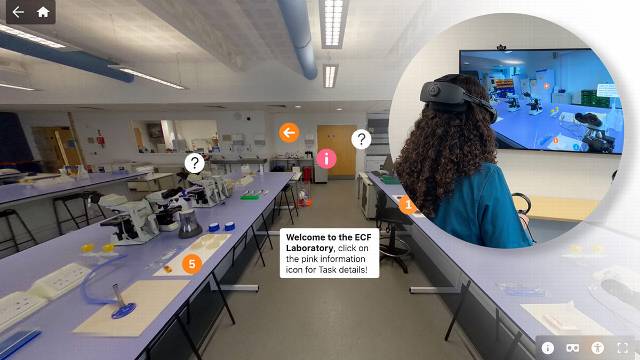In response to the anti-livestock movement, a group of scientists - including Harper Adams’ Deputy Vice Chancellor, Prof Michael Lee - have produced an opinion piece: Activist tactics and the discrediting of scientists to emphasise the need to distinguish ideological rhetoric from science.
In this blog, he explains why.
The recent Dublin Declaration on the Societal Role of Livestock- which states that ‘animal agriculture needs to be safeguarded from baseless and exaggerated accusations’ - has recently come under attack in an article in the Guardian Newspaper.
The article goes on to note that many of the 1000-plus scientist signatories of the Declaration, mainly in the agricultural science domain, had at sometime in their careers received funding from the red meat industry.
But does that really result in bias of scientific findings?
Agricultural scientists are by their very nature applied problem solvers, working at the cutting edge between scientific discovery and industrial application for the betterment of food production. Most agricultural research, be it in the field of nutrition, health or genetics, focuses on productivity and efficiency, producing more from less, resulting in more nutritious food for less environmental impact.
To ensure the greatest impact and application of the science, agricultural scientists often work directly with the stakeholders who will eventually utilise the findings of their work. In other words, scientists are often supported by industry to help find solutions – so that is the scoop the Guardian has uncovered – Agricultural Scientists work with the Agricultural sector!
I do feel if the journalists spent half the time reading the papers in the Animal Frontiers Journal which supported the Dublin Declaration instead of looking for reasons to cast doubt on the intentions of the scientist signatories, then they may have understood that the Declaration does not suggest that all is perfect and that the livestock sector should continue business as usual.
Far from it – the papers emphasise that the livestock sector needs to improve – focus on balanced diets – where the value of animal sourced foods compliments the greater intake of plant sourced foods (each championed for their different repertoire of nutrients); reduce greenhouse gas emissions; reduce nitrogen pollution; deliver circular food systems, protect and enhance biodiversity and continually strive to improve the welfare of animals in our care.
But - unlike knockers of the Animal Science community whose sole solution is removal of livestock from the planet, despite the great value livestock bring to society and sustainable diets - Animal Scientists seek solutions to improve and protect our livestock systems so our rural communities can flourish and we can all continue to enjoy the great diversity of animal sourced foods on our plate and protect the environment.
Unfortunately, this is not the first time that animal science has been accused of bias or as refusing to acknowledge environmental need.
The dissenting voices have ingrained views that the keeping of livestock for food for humans is ethically wrong and have used arguments around animal welfare, environmental impact and human health to support their position.
However, they are confusing ideological views on the role of livestock in society with Science.
An ideological ethical view cannot be changed no matter how much evidence is provided.
Science seeks evidence to disprove a hypothesis, not to determine a truth – no scientist is ever 100 per cent correct. Science will develop, hypotheses will modify and new hypotheses replace those that were established before.
Hence Animal Science and the Dublin Declaration is not bias – it is seeking better ways of doing things.
 Blog: Veterinary Medicine students step into immersive 360° laboratory
At Harper & Keele Veterinary School, students are stepping beyond the traditional microbiology bench and into an immersive 360° labo …
Posted
Yesterday
Blog: Veterinary Medicine students step into immersive 360° laboratory
At Harper & Keele Veterinary School, students are stepping beyond the traditional microbiology bench and into an immersive 360° labo …
Posted
Yesterday




